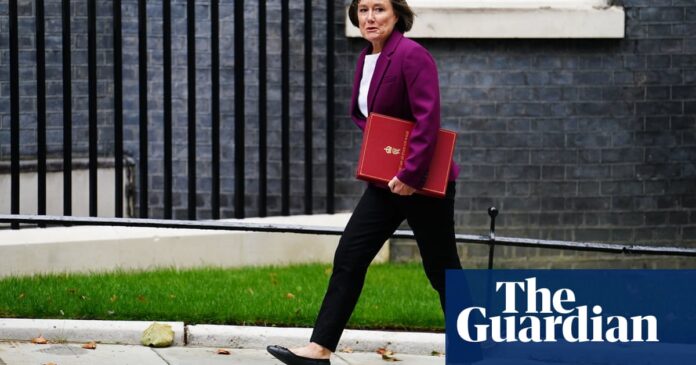NHS patients in Wales will be allowed to travel to England for care for the first time, under plans announced by the Welsh Secretary on Monday.
Jo Stevens will tell the Labour conference in Liverpool that she is drawing up proposals to allow patients to travel between England and Wales for outpatient or elective treatment.
Stevens will say the move will help reduce waiting lists on both sides of the border. But with the NHS in Wales struggling even more than in England, experts say any move is more likely to come from outside Wales, potentially putting further pressure on England’s overstretched NHS trusts.
Stevens said on Sunday: “Healthcare is one of the greatest shared challenges facing our two governments and we are acting quickly to address it.
These practical, healthy steps can create real change in the workplace for patients and clinicians.”
She will add in her speech on Monday: “This is the start of a new way of working together that will help improve outcomes in both countries and deliver on our missions. And it has only been possible because a transformed Wales Office under Labour has a strong voice across government.
“I will always be our fiercest advocate in Westminster … and will be knocking on every door in Wales and with the Welsh and British governments to ensure Wales gets what it needs.”
Under the plans, NHS trusts in England and Wales will be able to sign up to “mutual aid partnerships” that will allow them to use each other’s spare capacity as it becomes available. Trusts will not be forced to take patients from elsewhere if they feel they do not have the capacity to do so.
Such partnerships already exist between trusts in England, although they are mainly used in emergencies. They were also used during the Covid pandemic to ensure there was capacity to deliver the vaccination programme, while some trusts are using them on an ad hoc basis to share equipment such as CT scanners.
Former Conservative Health Secretary Steve Barclay floated such an idea while he was still in office, write to the decentralized authorities to take part in discussions about reducing waiting lists in the UK.
Talks did indeed take place, but according to authorities, nothing was done afterwards.
Conservative officials say the idea was rejected by leaders in the devolved administrations for political reasons. Labour officials say they suspect the Tory government wanted to use the idea to blame Labour-led Wales for England’s NHS crisis.
The most recent figures show that more than 20% of patients in Wales wait more than a year between referral and hospital treatment, compared with just over 4% in England. The Tories have regularly used the situation in Wales as an example of Labour mismanagement, despite the fact that health needs in Wales are generally more complex than those across the border.
Experts say the move could ease the pressure in Wales, even if it comes at the expense of patients in England.
Siva Anandaciva, chief analyst at the King’s Fund think tank, said: “It makes sense and fits with what both the English and Welsh health systems are trying to do to share resources such as equipment, beds and staff for the greater good.
“But if you lived in Bristol, for example, you might wonder what the impact would be of adding a country to the population of your catchment area.”
He added: “Providers think it makes sense to use resources collectively, but allocating demand is harder when everyone is busy and there is not much slack in the systems.”
Mark Dayan of the Nuffield Trust said: “It is a good idea to look at ways of working together across borders because people and NHS services are cutting across them, with no clear boundaries.”
But, he added: “It is highly unlikely that this will mean shorter waiting times for the vast majority of patients. The NHS in Wales and England has been struggling to keep up for years: there is no headroom on either side of the border.”
In her speech, Stevens will also indicate that the cooperation goes beyond sharing resources: the health ministers in both countries want to copy each other’s reforms to prevent a winter health crisis.
Officials say an idea that has sparked interest in England is Decision of 2022 by ministers in Wales to reduce the number of dental check-ups for people with healthy teeth, to make more time available for those who need an appointment more urgently.
Wales decided at the time to move regular dental check-ups from every six months to once a year, an idea criticised at the time by the British Dental Association as ‘cobbled together on the back of an envelope’.



